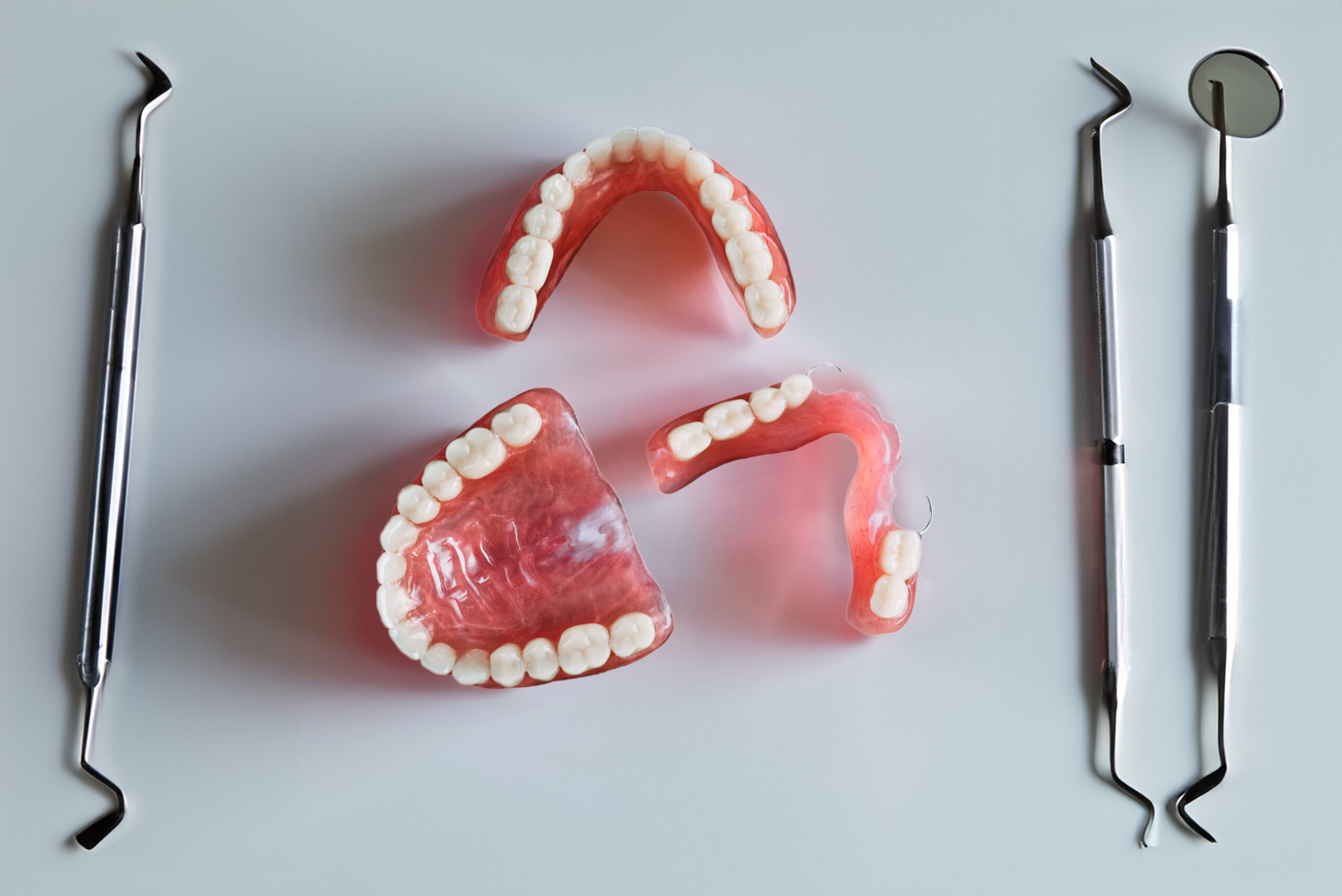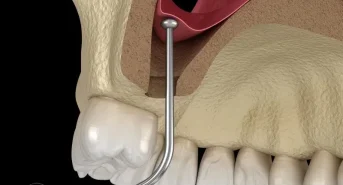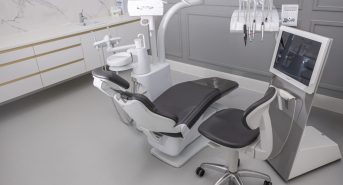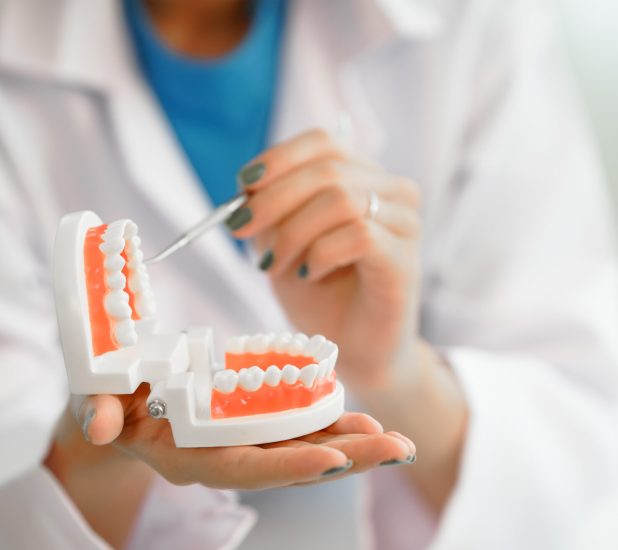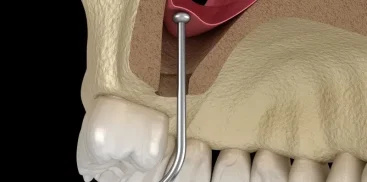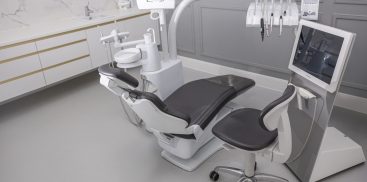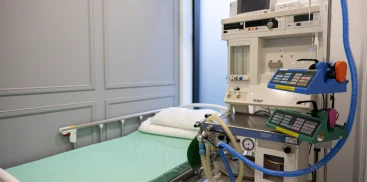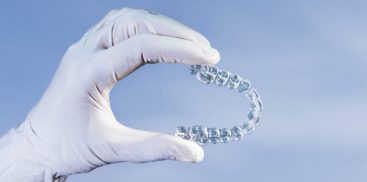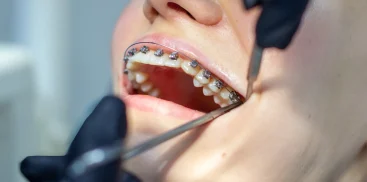The fabrication of a denture for a toothless area of the oral cavity is a significant investment in health. However, for the denture to serve for a long time, proper maintenance is necessary.
Cleaning dentures is not complicated. It is enough to familiarize yourself with the basic principles to avoid commonly made mistakes. In addition to caring for dental prosthetic hygiene, it is also important to have knowledge about what to do in case of damage.
Basic principles of dental prosthetic care
The fundamental principle of caring for dental prosthetics is their regular cleaning, requiring the same consistency as with natural teeth.
Proper cleaning of dentures not only extends their lifespan but is also important for maintaining the health of remaining teeth and gums. It removes accumulated microorganisms that can lead to oral infections.
During the cleaning of prosthetic replacements, it is recommended to avoid traditional toothpaste as many of them contain abrasive substances that can damage the denture, promoting the accumulation of deposits and contaminants. Cleaning dentures becomes much more effective and safe using products specifically designed for such prosthetic replacements.
Cleaning of dentures should cover all surfaces, so it is advisable to use dedicated accessories, such as special double-sided brushes that allow access to the most difficult-to-reach places.
The care of dental prosthetics can be effectively supported by using special disinfectant products such as pastes, concentrates, and effervescent tablets. The most popular are tablets that chemically cleanse the replacement and, during dissolution, assist in mechanical cleaning.
However, it is important for the primary cleaning method to be mechanical using a brush. Excessive use of chemical cleaning can have a negative impact on the material from which the denture is made.
Proper denture hygiene also includes its storage. It is not recommended to remove the prosthetic replacement before sleep unless necessary. In such cases, it is recommended to store it in dry conditions.
Denture hygiene does not end with daily cleaning alone. Periodically, it may be necessary to take it to the dental laboratory, where professional denture cleaning and a thorough examination of their condition will be carried out. Such actions are crucial for maintaining the high quality and aesthetics of the prosthetic replacement.
How often to clean dentures?
The optimal frequency of cleaning dentures is at least twice a day – in the morning and evening.
Even better, if the patient has the opportunity to clean the denture during the day, which positively affects not only appearance and health, but also well-being and comfort during meals. Residues of food left on the surface of the denture can interfere with taste sensations during subsequent meals. Regularly maintaining cleanliness of the denture contributes to maintaining oral hygiene and preventing potential health problems.
Home methods for denture cleaning
Periodic cleaning of dentures can also be done using simple household items. Immersing the denture in a solution of baking soda and vinegar is an effective way to disinfect it.
However, it is important to remember to thoroughly rinse the denture after using home cleaning methods. This ensures the removal of any remaining substances that could potentially irritate the mucous membrane.
What to do in case of denture damage?
In the event of denture damage (e.g., breakage, cracking, tooth or clasp detachment), immediate consultation with a dental office or dental technician is essential. They will handle the professional repair of the replacement. Regardless of how tempting it may be to repair the denture independently, it should be avoided, as it may result in permanent damage.
To maintain the denture in excellent condition, regular check-ups with the dentist are necessary. They will assess when the denture needs correction, professional cleaning, or even replacement with a new one. Systematic checks also allow for the early detection of any abnormalities in the oral cavity. This ensures the full functionality of the denture, and the health of the oral cavity remains under the constant care of specialists.
